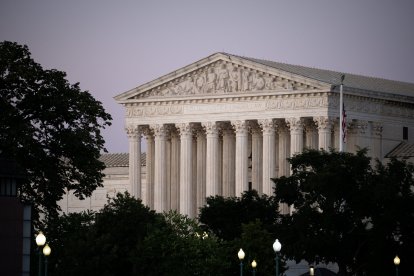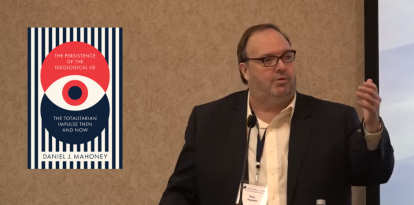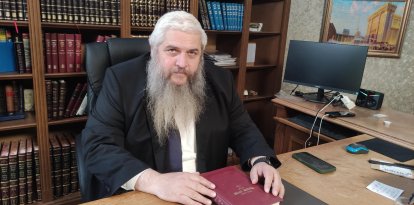Mahmoud v. Taylor: One of the most important parental rights cases in decades
The Supreme Court heard oral arguments in the case, in which parents from Montgomery County, Maryland are asking that their children, ages 4 to 11, not be required to read books featuring LGBTQ+ themes.

Supreme Court
"A ruling in their favor could prove one of the most important victories for parental rights in decades," wrote renowned attorney Jonathan Turley in his column on the Mahmoud v. Taylor case. This week the Supreme Court heard oral arguments in this case, in which parents in Maryland's Montgomery County are asking that their children, ages 4 to 11, not be forced to read stories with LGBTQ+ stories in their literature classes.
The Court's decision is critical because it could significantly change the way public schools include these types of books in instruction for such young children. One of the storybooks the children were exposed to is titled "Prince and Knight," the description says it is a "modern fairy tale" for children ages 4 to 8, and the story is about two boys who fall in love after fighting together against a dragon that threatens their kingdom and subsequently marry.
The parents argued that the books violate the First Amendment because of content contrary to their religious beliefs. Meanwhile, the school board countered that the books were intended to teach about diversity and respect for differences, and were religion-neutral.
This case dates back to 2022, when Montgomery County approved the inclusion of books featuring LGBTQ characters in its language arts curriculum. At that time the county announced that it would not allow parents to opt their children out of classes in which those books were read, an action that was allowed before.
A federal appeals court ruled in favor of the school district, concluding that educators did not pressure the children to abandon their religious beliefs, and that hearing diverse opinions does not necessarily exert pressure to believe or act contrary to their religious faith.
At this week's session, most Supreme Court judges appeared to side with the parents. Even liberal judge Elena Kagan said: "I, too, was struck by these young kids' picture books and, on matters concerning sexuality, I suspect there are a lot of non-religious parents who weren't all that thrilled about this." Judge Brett Kavanaugh, said he was "mystified" as to why the county canceled its original opt-out policy, which allowed children to exempt themselves from classes that went against their religious beliefs.
While it's true that exposure to certain types of ideas doesn't always cause someone to change their thinking, how do you measure the influence that type of content has on readers? It is impossible to predict. Even more so when it comes to children under the age of 11. Generally, children want to be like the characters in the stories they read, so it is common to see boys playing heroes and girls playing princesses. So, although there is no exact way to calculate the degree of influence, it is possible that it is very high.
On the other hand there is the issue of the right of parents to educate their children in the way they consider best, according to their values and their beliefs. The idea that if parents don't want the kind of education the school provides they should simply withdraw them, is to put families up against a wall and make many parents resign themselves to their children having a bad, even harmful, education. Because of the way the education system works in this country, parents have limited public school options depending on where they live, so if they want to change their child's school, in many cases the only option is a private school, which in the US is prohibitively expensive. In fact, one of the parents who filed this lawsuit had to sell his home to pay for his daughter's private education.
Parents pay taxes to have services like these, it is not fair, nor healthy, for the public education system to be captured by unions and teachers with progressive ideologies that seek to expose children so young to ideas that definitely go against the religious beliefs of many. It is important that parents have the right to withdraw their children from classes that go against their principles, and it would even be very good news if schools had some kind of indication that limits the exposure of such controversial content, and related to gender ideology, in classrooms of children at such young ages.
The ruling is expected before the Court's summer recess at the end of June. This is an important case not only for Montgomery County, but for parents across the country.
RECOMMENDATION





















